1988 – 2018: 30 Years of Berea College Watson Fellows
an interview with
Sunaina Sherchan
Each year, graduating seniors from 40 institutions around the nation are eligible to apply for the Thomas J. Watson fellowship. Its purpose is to grant those seniors the means to complete an independent project outside of the United States.
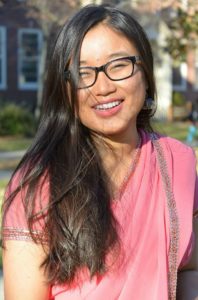
Since its induction as a partner institution in 1988, Berea College has had 37 Watson recipients. This year’s winner, Sunaina Sherchan, Berea College Class of 2018, will be learning about folktale traditions and has plans to visit Japan, New Zealand, and Finland. We asked her to share experience with us.
What encouraged you to apply for the Watson?
I’m originally from Nepal, and scholarships are unheard of there. When I was applying to Berea College, I thought the opportunity was unreal, and I spent a lot of time checking to see if I had been accepted. This was practically a free education in the United States. My freshman year I became interested after I learned that there had been a recipient, Tuvshinzaya Amarzaya (’15), on campus. I was encouraged to start thinking about my project proposal from the beginning of my time here.
What was your passion or inspiration for your proposal?
I went back home for the first time in three years to go to the Bara Barsa festival that is held in the Himalayas once every twelve years. It was there that I was fully immersed in the culture of my ethnic Thakali community for the first time. I listened as people engaged in storytelling and shared traditional folktales and fairytales. These tales helped shape my identity, and I wondered how similar traditions around the world affected members of their communities.
What resources did you use as a source for inspiration as you wrote your personal statement?
The Watson website has a list of recipients and their project proposals and you can find many resources online from other colleges’ recipients. There is also a binder provided in the office at the Center for International Education that has several examples. These examples helped me understand many different ways that I could present my ideas, but it’s important to stay true to how you write. I used them as sources for inspiration. I think it is important to write a statement first and then use these resources as guides for editing.
What was the process like?
When the results revealed the four nominees on campus, we all went through a series of several mock interviews. As a group we spent time together discussing our passions and supporting each other as we wrote and revised our proposals. I spoke to others who were familiar with the process. I don’t think that I would have won without the support that I had through it all. One of the things I least expected was how excited some people were for me when I had received the fellowship.
What do you think it takes in order to be a successful Watson winner?
They want to help you succeed in exploring a topic that you’re passionate about and you want to be able to convey this in a genuine and creative manner. You should know why you’re so invested in this project and be able to clearly explain what it means to you. If you have multiple ideas, it’s important that you stick to the one that can most accurately reflects your dedication and engagement in your countries of interests and the theme of your project.
What advice do you have for other students?
There are a lot of people who start applying for the Watson, but many end up not completing their applications. My advice is to at least try. You are lucky enough to be from a limited group of applicants from forty* institutions. Even if you don’t win, you get valuable learning experience to use toward future opportunities.
Another tip I have is to not be too discouraged about discussing your ideas with others. At first I was worried about sharing my stories with others, but doing so helped me see how those who listened perceived them. Hearing their responses helped me see ways I could make improvements.
An important thing to keep in mind is that the project should mean something personal to you and be centered on a passion that you’re deeply invested in. You want to be able to express the details of your plans in a way that reflects the bigger picture and how connected and invested you are in your project.
Interested in applying? We’re now accepting applications for students graduating in December 2018 and May 2018.
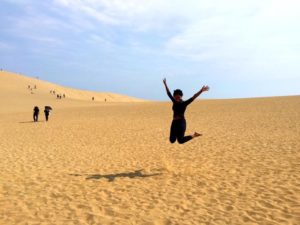
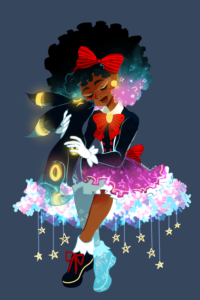
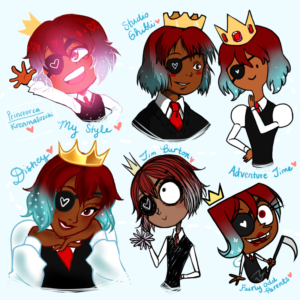
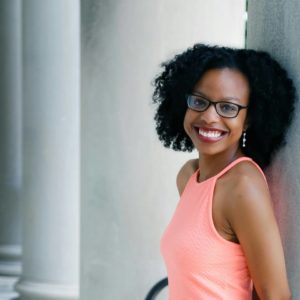
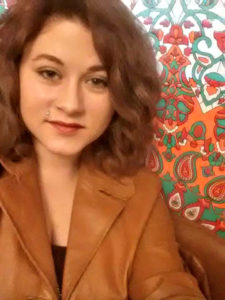
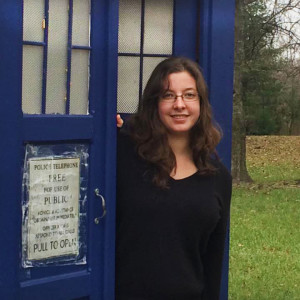 Aja hopes to be an English Teaching Assistant (ETA) in Belgium. Studying French throughout middle and high school revealed her passion for exploring new languages and cultures. As an additional project, Aja plans to engage with food issues that arise in Belgium. She has vast experience working with food security and teaching people how to grow their own healthier food. She will find out by late April if she has been selected by the Belgian National Selection Committee.
Aja hopes to be an English Teaching Assistant (ETA) in Belgium. Studying French throughout middle and high school revealed her passion for exploring new languages and cultures. As an additional project, Aja plans to engage with food issues that arise in Belgium. She has vast experience working with food security and teaching people how to grow their own healthier food. She will find out by late April if she has been selected by the Belgian National Selection Committee.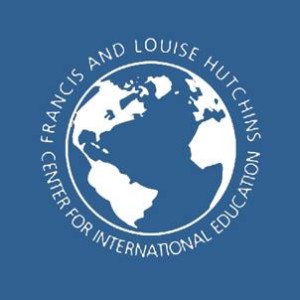 47 Berea students studied abroad for a semester or a full year—30% more than the previous year and an all-time record for Berea College! A total of 169 students experienced some kind of educational experience abroad in more than 35 countries.
47 Berea students studied abroad for a semester or a full year—30% more than the previous year and an all-time record for Berea College! A total of 169 students experienced some kind of educational experience abroad in more than 35 countries.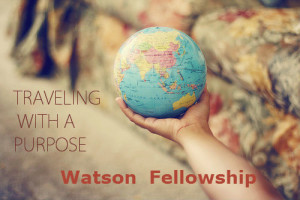 BEREA, Kentucky—The Center for International Education is proud to announce its four Berea College Nominees to the national slate for the 2016-2017 Watson Fellowship. Fewer than 160 graduating seniors from 40 institutions are nominated nationwide for this esteemed prize. Berea College is the only school in the Commonwealth from which The Watson Fellowship accepts candidates.
BEREA, Kentucky—The Center for International Education is proud to announce its four Berea College Nominees to the national slate for the 2016-2017 Watson Fellowship. Fewer than 160 graduating seniors from 40 institutions are nominated nationwide for this esteemed prize. Berea College is the only school in the Commonwealth from which The Watson Fellowship accepts candidates. I studied abroad this past semester, spring 2015, in Alicante, Spain. My decision to study abroad was not an easy one. I did not think I would have enough money, I was not sure where to do, and when to go. However, I did know that time abroad would be exactly what I need to complete my college experience. After talking to fellow Berea College students that have gone abroad, I decided that I should see the world, even if it meant taking out a large loan. Fortunately, a year post my decision to study abroad, I am beyond content with my choice to study in Spain and I did so with the help of the GEO scholarship from Berea and the Gilman scholarship, leaving me only a small amount of loan.
I studied abroad this past semester, spring 2015, in Alicante, Spain. My decision to study abroad was not an easy one. I did not think I would have enough money, I was not sure where to do, and when to go. However, I did know that time abroad would be exactly what I need to complete my college experience. After talking to fellow Berea College students that have gone abroad, I decided that I should see the world, even if it meant taking out a large loan. Fortunately, a year post my decision to study abroad, I am beyond content with my choice to study in Spain and I did so with the help of the GEO scholarship from Berea and the Gilman scholarship, leaving me only a small amount of loan. During my time abroad, I was able to take 5 courses in Spanish, lived with an amazing host family, travel to other countries, paraglide on the coast of the Mediterranean sea, zip line from Spain to Portugal, visit most of the major cities in Spain and even attend a Barcelona soccer game; I have had an amazing journey. One of them most incredible experience of my abroad trip that was made possible because of the Gilman scholarship was my Camino de Santiago or St. James’s Way. A group of students from my study abroad program and some of our professors embarked on this five-day pilgrimage in the region of Galicia, Spain. We started our pilgrimage in Sarria and ended in Santiago de Compostela, where St. James was buried. Through this 75 miles walk, I learned a lot about my companions or “pilgrims” as we were called and a lot about myself. We supported each other through every step, laughed at every funny joke and the never-ending singing of Disney songs, cried through the pain of blisters, sunburn, and other wounds and sometimes literally carrying each other but we made it and we made it together. The Camino made me realize so much more about who I am, what I shared with other and who I want to become.
During my time abroad, I was able to take 5 courses in Spanish, lived with an amazing host family, travel to other countries, paraglide on the coast of the Mediterranean sea, zip line from Spain to Portugal, visit most of the major cities in Spain and even attend a Barcelona soccer game; I have had an amazing journey. One of them most incredible experience of my abroad trip that was made possible because of the Gilman scholarship was my Camino de Santiago or St. James’s Way. A group of students from my study abroad program and some of our professors embarked on this five-day pilgrimage in the region of Galicia, Spain. We started our pilgrimage in Sarria and ended in Santiago de Compostela, where St. James was buried. Through this 75 miles walk, I learned a lot about my companions or “pilgrims” as we were called and a lot about myself. We supported each other through every step, laughed at every funny joke and the never-ending singing of Disney songs, cried through the pain of blisters, sunburn, and other wounds and sometimes literally carrying each other but we made it and we made it together. The Camino made me realize so much more about who I am, what I shared with other and who I want to become.